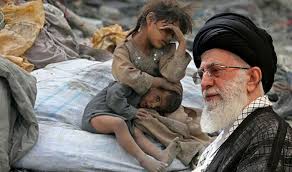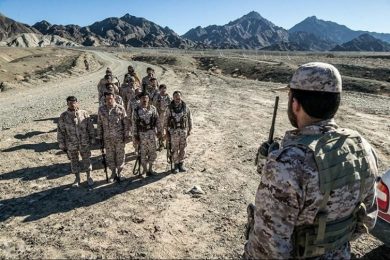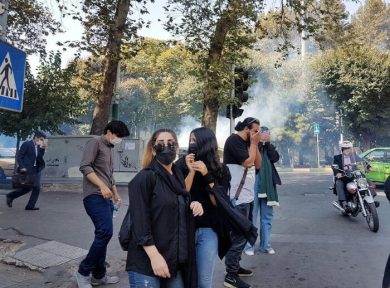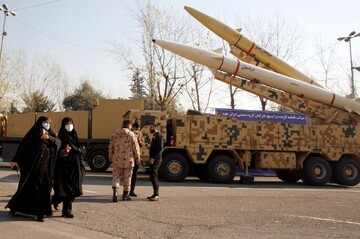For decades, Iranian women have been subjected to systematic oppression under the rule of the Islamic Revolutionary Guard Corps (IRGC) and the Iranian regime. Despite this, they have emerged as leaders of resistance, standing at the forefront of protests, digital activism, and legal battles against gender discrimination and state repression.
From refusing to wear the mandatory hijab to organizing protests and exposing human rights violations, Iranian women are defying the IRGC’s tactics of fear and control. Their courage has turned them into symbols of resistance, inspiring movements both inside and outside Iran.
This report examines:
• How the IRGC suppresses Iranian women.
• The ways women are resisting and challenging oppression.
• The consequences faced by women activists.
• The role of global solidarity in supporting their fight.
1. The IRGC’s Role in Oppressing Women
The IRGC plays a crucial role in enforcing the regime’s policies aimed at controlling women’s lives. This is done through:
A. The Morality Police and Compulsory Hijab Laws
• Women are required by law to wear the hijab in public, with violators facing arrest, fines, and imprisonment.
• The IRGC oversees the morality police, who harass, detain, and assault women for their clothing choices.
• Mahsa Amini’s death in 2022, after her arrest for “improper hijab,” sparked nationwide protests against IRGC brutality.
B. Arrests and Imprisonment of Activists
• Women’s rights activists, journalists, and protesters are frequently arrested on vague charges such as “propaganda against the state” or “acting against national security.”
• Many are sent to Evin Prison and Qarchak Prison, where they face torture, solitary confinement, and sexual abuse.
C. Surveillance and Digital Crackdowns
• The IRGC monitors social media, targeting women who share content about protests, feminism, and human rights violations.
• Internet shutdowns and cyberattacks are used to prevent women from organizing and spreading information.
D. Economic and Legal Discrimination
• Women face legal discrimination in areas such as inheritance, divorce, and child custody.
• Job opportunities for women are limited, with many government and leadership positions restricted to men.
Despite these severe restrictions, Iranian women continue to resist, finding new and innovative ways to challenge oppression.
2. Forms of Resistance: How Women Are Fighting Back
A. Removing the Hijab: A Symbol of Defiance
One of the most powerful acts of defiance against the IRGC’s gender policies is removing the hijab in public.
• Women have been seen walking the streets hijab-free, despite the risk of arrest.
• The campaign #No2Hijab has gained global attention, highlighting the fight for bodily autonomy.
B. Protests and Civil Disobedience
• Women have played a leading role in protests, from the 2009 Green Movement to the 2022 Women, Life, Freedom uprising.
• Female students have challenged hijab mandates in universities, sparking nationwide debates.
C. Digital Activism and Exposing Human Rights Violations
• Women journalists and influencers use social media platforms to share footage of IRGC violence and human rights abuses.
• Campaigns like #MahsaAmini and #FreeIran have mobilized millions globally, putting pressure on the regime.
D. Women Journalists and Whistleblowers
Despite facing imprisonment and censorship, Iranian women journalists continue to report on:
• State violence and corruption.
• Unfair trials of activists.
• Human rights abuses by the IRGC.
E. Legal Challenges and International Advocacy
• Iranian women lawyers and activists advocate for reforms in Iran’s legal system.
• Many work with international human rights organizations to document IRGC abuses and push for global sanctions.
3. The Consequences of Defying the IRGC
A. Imprisonment and Torture
Women who defy the regime often face lengthy prison sentences.
• Narges Mohammadi, a women’s rights activist, has been repeatedly jailed for her advocacy.
• Nasrin Sotoudeh, a human rights lawyer, was sentenced to 38 years in prison and 148 lashes for defending women’s rights.
B. Harassment and Intimidation
• The IRGC targets activists’ families, threatening their loved ones to silence them.
• Many women are forced into televised confessions, admitting to false crimes under torture.
C. Exile and Forced Migration
• Many Iranian women activists have been forced into exile due to threats against their lives.
• Even in exile, the IRGC has attempted kidnappings and assassinations, as seen in the case of Masih Alinejad, a prominent activist.
4. The Role of Global Solidarity
A. International Pressure and Sanctions
• The IRGC has been designated as a terrorist organization by the U.S., limiting its international power.
• Calls for European nations to follow suit and impose targeted sanctions on IRGC officials are growing.
B. Digital and Media Support
• Tech companies can help by providing secure communication tools to Iranian women.
• Media outlets should prioritize stories of Iranian women, amplifying their voices on a global stage.
C. Support for Political Prisoners
• International organizations must continue to push for the release of women imprisoned by the IRGC.
• Governments should offer asylum and protection to at-risk activists.
D. Global Protests and Awareness Campaigns
• Women’s rights groups worldwide should organize rallies and protests in support of Iranian women.
• Social media activism must continue to expose the IRGC’s oppression and keep the movement alive.
Conclusion: Women Are Unstoppable
Despite the IRGC’s brutal repression, Iranian women are leading the fight for freedom. Their resistance—on the streets, online, and in courts—has shaken the foundations of the regime.
From burning hijabs to shouting slogans of defiance, Iranian women refuse to be silenced. Their fight is not just about gender equality—it is a struggle for democracy, human rights, and a free Iran.
The world must stand with them.
“Women, Life, Freedom” is more than a slogan—it’s the future of Iran.
Join Our Newsletter!
Stay informed with the latest updates, news, and ways to take action in the fight for justice and global security. Sign up now to get updates delivered straight to your inbox!





